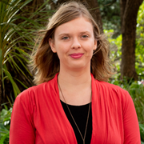- The Autism Clinic at Te Herenga Waka—Victoria University of Wellington leads a pilot initiative targeting early identification and support for children with signs of autism.
- 300 health and education professionals are trained to recognize early indicators of autism in children under five, referring them to the clinic for immediate assistance.
- The programme offers 20 weeks of free support to 60 children and families, emphasizing early intervention to alleviate stress and improve outcomes.
Researchers from the Autism Clinic at Te Herenga Waka—Victoria University of Wellington have piloted an initiative aimed at identifying and supporting children displaying signs of autism at an early age.
Training for health and education professionals
Under this programme, 300 health and education professionals have undergone training to recognise early indicators of autism in children below the age of five. Upon identification, these professionals refer the children to the Autism Clinic for immediate assistance, explains Dr. Hannah Waddington, lead of the clinic.

Tailored support for families
The initiative offers 20 weeks of free support to 60 children and their families in the Wellington region.
“We know it’s really difficult for families to find help. A child may be diagnosed as autistic but there’s often no assistance available for ages. By offering support as soon as signs of autism are observed, we hope to reduce a lot of stress and improve outcomes for the whole whānau,” said Dr. Waddington.
Raupī te Raupō: A unique support service
Participating families have access to Raupī te Raupō, a bespoke support service specifically for children in Aotearoa (the Māori-language name for New Zealand), developed by the clinic in collaboration with autistic and Māori advisory groups. This service, tailored to meet the needs of New Zealand communities, provides weekly sessions with ‘coaches’ who offer practical strategies and interactive sessions for families and children.
Families referred to Raupī te Raupō through the pilot will start receiving support at the beginning of May.
Also read: Should dead children be given an AI ‘afterlife’?
Also read: Canadian school boards sue social media giants for nearly $3B
MoSAIC for early detection
Professionals use the Monitoring of Social Attention, Interaction, and Communication (MoSAIC) tool, developed by Dr. Josephine Barbaro of Australia’s La Trobe University, to identify autistic children. This tool is internationally recognized as the gold standard for early autism detection.
The pilot programme will be evaluated later this year to gauge the impact of early intervention and support on children and families.

